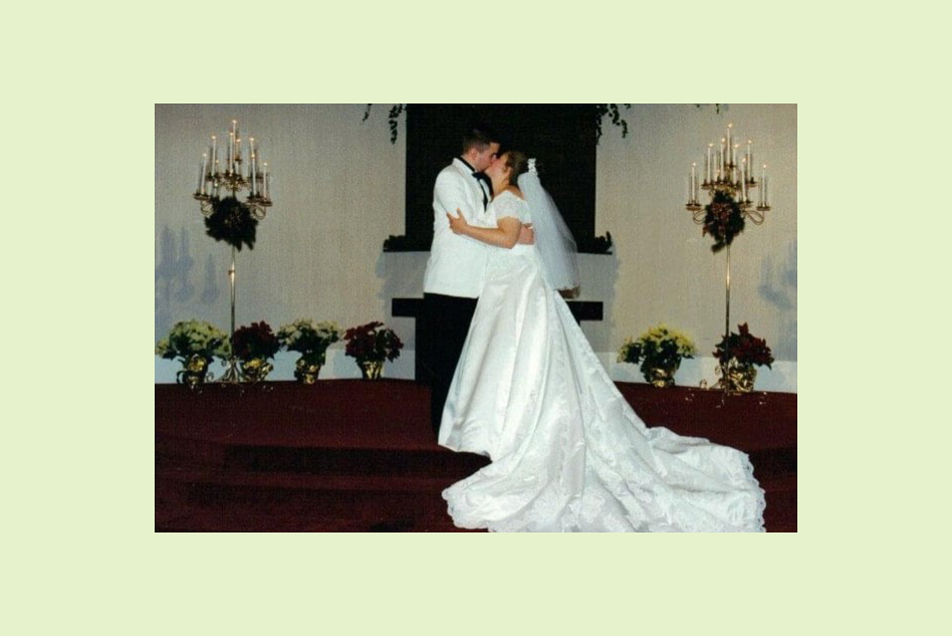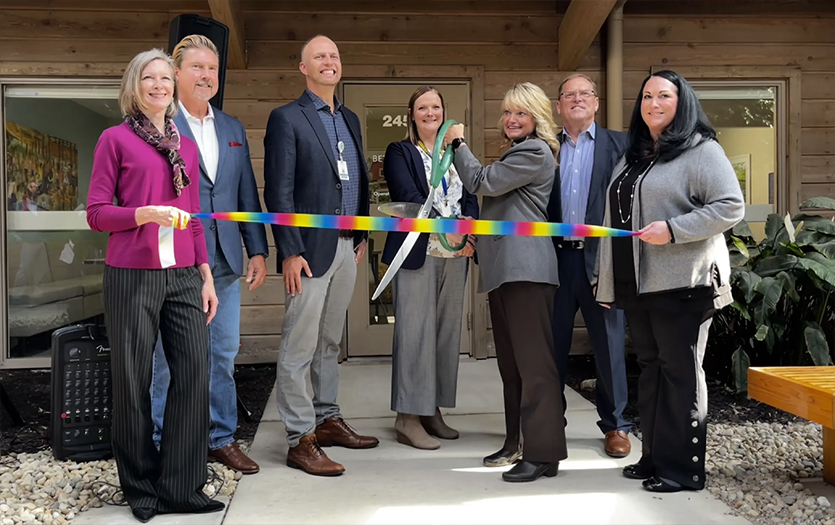
This post was written by Patrick Riecke, director, Dignity and Spiritual Care, Parkview Health.
While our miscarriage was a shock to both of us, my wife, Kristen, knew many women who had miscarriages or stillborn babies. She attended multiple funerals of infants before we were married.
However, I (Patrick) had no context for this type of grief.
At the time, we were both new college graduates, and we were headed to the mission field. I was an intern at our church, we had good insurance, and we lived across the street from Parkview Hospital Randallia (this was the year 2000, before Parkview Regional Medical Center had been built).
You might wonder how all those facts about our lives connect to my experience of losing Stephen. They are connected to me because I felt we didn’t deserve to have this kind of tragedy. In my mind, we were good people who were doing things the right way. So, not only did the miscarriage feel sad. To me, it felt wrong.

Nearly two decades later, I realize that bad things happen to good people, and the belief that some people deserve grief less than others is not a helpful view. But, at that time, I was angry. I was angry because my son died.
Once, shortly after the miscarriage, I was in our little backyard surrounded by a chain-link fence with our beloved dog, Jackson. I was boiling inside over the sense of injustice.
Why would God let this happen – to us? Why were other people having healthy babies right and left, and the minister and his wife were experiencing such grief?
It seemed like Jackson was taking too long in the backyard, and when he came close, I kicked him right in the rear end. I had never kicked him before. I loved Jackson with all my heart. So why did I kick him?
I kicked the dog because God was out of reach.
I would have preferred to kick God instead.
(Later, I apologized to Jackson. He was gracious and forgave me.)
So, my primary initial response was anger.
After some time passed, I just needed to talk about it. I even discussed Stephen in a lot of my sermons over the next few months. It’s not for everyone, of course, but having a formal way to mention Stephen helped me tremendously. Dads sometimes need an excuse to talk about their babies. We might need a memorial service, or an annual tradition, a grief counselor or support group, to have a “reason” to talk about our grief.
A dear friend of ours and local author, Kavin Ley, has written beautifully about his experience as a grieving father. His book, “Asher, My Son: A Year in the Life of a Childless Father,” chronicles his grief after Asher was born still. Get his book today if you are a dad in grief.
Moms, don’t expect dads to feel like you do. We don’t. But that doesn’t mean we don’t feel anything. We might feel angry. We might need an excuse to talk about it. We might feel helpless to help you and others who are grieving. And we might try so hard to be strong that we start to crumble inside.



